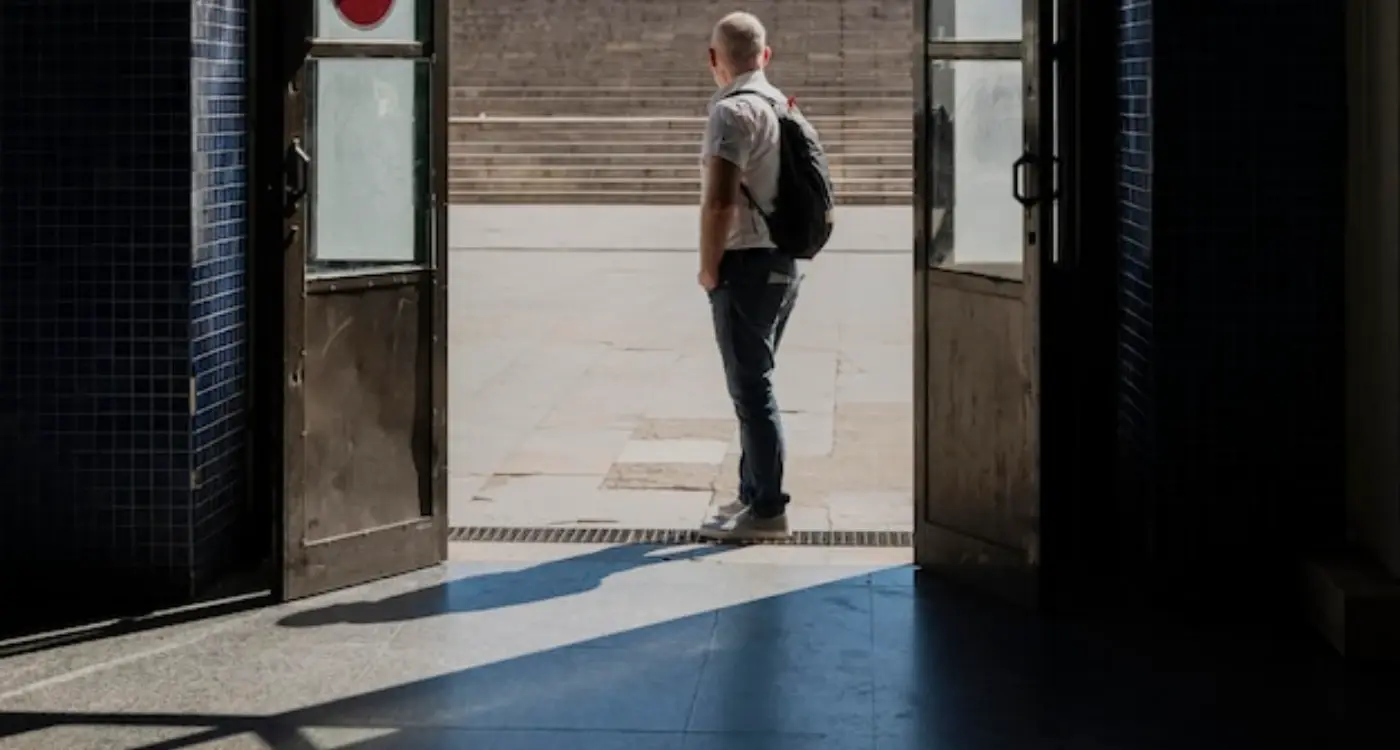What IP Rights Do Freelance Developers Keep From Your App?
A significant number of businesses discover they don't actually own their app after spending thousands on development. It's a harsh reality that catches entrepreneurs off guard—you pay for custom software development, but the freelance developer might legally own parts of your application unless proper agreements are in place. This isn't some legal loophole or developer trickery; it's simply how intellectual property law works by default.
I've seen this play out countless times over my years in the industry. A startup gets their app built, everything seems fine, then they want to make changes or hire a new developer team. Suddenly they discover their original freelancer claims ownership of key components, frameworks, or even entire sections of code. The developer isn't being unreasonable—they're just protecting what the law says belongs to them.
The confusion stems from a basic misunderstanding about how IP rights work. When you hire someone as an employee, you automatically own what they create for your business. But freelancers? That's a completely different story. They're independent contractors, and unless you've specifically addressed ownership in your contract, they retain rights to their work.
The default assumption in most legal systems is that whoever creates something owns it, regardless of who paid for it
This guide will walk you through exactly what rights freelance developers keep, how to protect your interests from day one, and what to do if you're already in a tricky situation. Understanding these rules isn't just legal housekeeping—it's about protecting your business and ensuring you actually own what you think you've paid for.
Understanding Developer IP Rights
Right, let's get straight to the point here—when you hire a freelance developer to build your app, you might think you automatically own everything they create. But here's where it gets a bit tricky. By default, the person who creates the work (that's your developer) actually owns the intellectual property rights to their code, designs, and any other creative elements they produce.
I've seen this catch business owners off guard more times than I can count. You pay for the work, so surely you own it? Well, not necessarily. Think of it like commissioning an artist to paint a picture—unless you specifically agree otherwise, the artist retains the copyright even though you paid for the painting. The same principle applies to software development.
What This Means in Practice
When developers work on your project, they're creating various types of intellectual property: source code, database structures, user interface designs, algorithms, and sometimes even business logic implementations. Without proper agreements in place, they technically own the rights to reuse, modify, or even sell this work to others.
Now, most reputable developers aren't going to run off and sell your app idea to your competitors—that would be commercial suicide. But the legal reality is that they could potentially reuse portions of your code in other projects, or even prevent you from making certain modifications to your own app without their permission.
The Grey Areas
Here's where things get even more complicated. Some developers argue they should retain rights to "general knowledge" and coding techniques they've developed over the years. They might want to keep using certain functions, libraries, or architectural approaches they've created. And honestly? That's not entirely unreasonable from their perspective.
The key is understanding what's at stake and making sure everyone's on the same page from day one.
Default Ownership Rules
Right, here's where things get a bit mad actually—by default, freelance developers keep ownership of almost everything they create. I know, it sounds backwards doesn't it? You pay someone to build your app, but legally speaking, they own the code they write for you.
This is because of how intellectual property law works in the UK. When someone creates something original (like code), they automatically own the copyright to it. Unless there's a specific agreement saying otherwise, that ownership stays with the creator—not the person who paid for it. It's like hiring an artist to paint a picture; just because you commissioned it doesn't mean you own the rights to reproduce it.
What This Actually Means
In practical terms, your freelance developer could theoretically take the code they wrote for your app and use it for another client's project. Or sell it. Or refuse to let you modify it without their permission. Honestly, it happens more often than you'd think, and it can get messy very quickly.
The only exception is if the developer is creating something that's considered "work for hire"—but that's quite specific and doesn't apply to most freelance arrangements. We'll cover that properly in the next chapter, but for now, just know that standard freelance contracts don't automatically transfer ownership to you.
Always assume that without a written agreement, your freelance developer owns everything they create. Don't rely on verbal agreements or assumptions about "common sense"—the law is clear on this one.
This is exactly why proper contract terms when hiring app developers are so important. You need to explicitly state that all code, designs, and related materials become your property once payment is made. Otherwise, you might find yourself in the awkward position of not actually owning the app you paid to have built.
Contractor vs Employee Differences
Here's where things get interesting—the legal relationship you have with your developer completely changes who owns the intellectual property. And I mean completely. The difference between hiring someone as a contractor versus an employee isn't just about tax forms and benefits; it fundamentally shifts the ownership of everything they create for your app.
When you hire an employee to build your app, the law automatically assumes that any code, designs, or other creative work they produce during their employment belongs to your company. This is called "work made for hire" and it happens without any special contracts or agreements. The employee gets their salary, you get the IP. Simple.
But contractors? That's a different story entirely. By default, freelance developers own the copyright to everything they create—even if you're paying them to build it specifically for your app. Yes, you read that right. Unless you have a proper agreement in place, that freelancer could technically own the code that powers your entire business.
Why This Distinction Matters
I've seen this confusion cost businesses thousands in legal fees. A client once hired a contractor to build their e-commerce app, assuming that paying for the work meant they owned it. Six months later, when they wanted to make updates with a different developer, the original contractor claimed ownership of the codebase. It got messy quickly.
The key difference comes down to control and independence. Employees work under your direction, following your schedule and methods. Contractors work independently, delivering results but controlling how they achieve them. This independence is exactly why the law treats their creative output differently—they're essentially licensing their work to you rather than creating it as your agent.
Work for Hire Agreements
Work for hire agreements are your best friend when you're working with freelance developers—though honestly, most people get them completely wrong. I've seen clients think they're protected just because they've got a contract, but the devil's really in the details here.
A proper work for hire agreement needs to explicitly state that any code, designs, or intellectual property created during the project belongs to you from the moment it's created. Not when the project's finished. Not when you've paid the final invoice. From day one. The language needs to be crystal clear about this—I've seen too many agreements that use vague terms like "upon completion" which can cause problems later.
What Makes a Strong Agreement
Your agreement should cover pre-existing code that the developer might use. Most developers have libraries of code they've built over time, and that's fine—but you need to know what's theirs and what becomes yours. The agreement should state that any new code written specifically for your project is yours, while acknowledging that general programming techniques and their existing code libraries remain theirs.
The strongest work for hire agreements address not just ownership, but also the developer's right to showcase the work in their portfolio and any confidentiality requirements around your business logic.
Don't forget about moral rights either—in some jurisdictions, developers can claim authorship even after you own the code. A good agreement will include a waiver of moral rights where legally possible. And here's something that catches people out: make sure the agreement covers any subcontractors the developer might use. You don't want to find out later that someone else has claims on parts of your app.
Protecting Your Ideas During Discussions
You know what's mad? I've seen so many people get burned because they shared their brilliant app idea with a developer before putting any protection in place. They'd explain everything—their unique features, business model, target market—thinking they were just having a friendly chat about the project. Then six months later, they spot an app that looks suspiciously similar to their idea.
Here's the thing though: ideas by themselves aren't actually protected by copyright or patent law. But the detailed plans, mockups, business strategies, and technical specifications you share? Those absolutely can be. That's why protecting yourself during early conversations is so important, even if it feels a bit awkward bringing up legal stuff when you're just trying to find the right developer.
Your Protection Toolkit
Before you start sharing the good stuff, make sure you've got these basics covered:
- Get a Non-Disclosure Agreement (NDA) signed before any detailed discussions
- Keep records of what you share and when—screenshots of emails work fine
- Document your idea development process with dates and versions
- Only share what's necessary for getting an accurate quote
- Ask about their existing client commitments in similar industries
Look, most developers aren't sitting around plotting to steal your ideas. We're usually too busy with existing projects to go off building competing apps! But accidents happen, and sometimes developers work with similar clients without realising there's a conflict.
The NDA doesn't just protect you legally—it shows you're serious about your business and helps establish professional boundaries from day one. Any decent developer will understand why you need one and should be happy to sign it. If they push back or seem offended? That's actually quite telling about how they'll handle your project.
What Developers Can and Cannot Keep
Right, let's get into the nitty-gritty of what freelancers can actually hold onto when they build your app. This is where things get a bit messy because its not always black and white—and honestly, this confusion causes more headaches than you'd think.
By default, developers typically retain rights to any code they write unless you've got specific agreements saying otherwise. But here's where it gets interesting: they can't keep your business logic, your app idea, or anything that's uniquely yours. Think of it like this—they might own the hammer they used, but they don't own the house they built with it.
What Developers Usually Keep
- General programming techniques and methods they use
- Code libraries or frameworks they've developed independently
- Skills and knowledge gained during the project
- Their development tools and software
- Personal portfolio rights (unless restricted by contract)
What They Cannot Keep
Developers definitely cannot retain ownership of your specific business processes, unique algorithms you've designed, proprietary data structures, or anything that makes your app distinctly yours. They also can't keep your branding, design elements, or customer data—that would be mad, wouldn't it?
The tricky bit comes with custom code written specifically for your project. Without proper agreements, this often remains with the developer by default under UK law. But any pre-existing code they bring to the project? That's typically still theirs.
Always clarify upfront what the developer considers "their existing tools" versus what they'll create specifically for your project. This conversation prevents nasty surprises later.
The key thing to remember is that assumptions are dangerous here. What seems obvious to you might not be obvious to them, and vice versa. That's exactly why we need proper IP assignment agreements—which we'll cover next.
Right then, let's talk about actually getting those IP rights transferred properly. Because knowing what you're entitled to is one thing—making sure it legally happens is another thing entirely.
The single most important document you'll ever sign with a freelance developer? The IP assignment agreement. Not the project contract, not the payment terms, but this specific piece of paper that says "everything you create for this project belongs to me, the client." Without it, you're basically hoping for the best and that's not a strategy I'd recommend to anyone.
What Should Be In Your Assignment Agreement
Your IP assignment needs to be crystal clear about what's being transferred. I mean really clear—not just "all work" but specifically mentioning source code, designs, documentation, algorithms, database structures, and any other intellectual property created during the project. You want to cover present and future rights too, because apps evolve through various development phases and you don't want surprises later.
The timing matters as well. Get this signed before any work begins, not after. I've seen too many situations where developers have already started coding and then negotiations get... complicated. They know you need that code, and suddenly they have leverage.
Making It Stick Legally
Here's something people often miss—consideration. In legal terms, both parties need to get something from the agreement. Usually that's the payment you're making for their services, but make sure its explicitly stated in the document.
Also, include a clause about moral rights. In some jurisdictions, developers can claim moral rights even after IP assignment, which could give them some ongoing control over how their code is used or modified.
Get it witnessed if possible, keep copies safe, and honestly? Have a solicitor look it over if the project is worth more than a few thousand pounds. Better safe than sorry when it comes to protecting your business.
Right, we've covered quite a bit of ground here—and honestly, it's probably more complex than you thought when you first started looking into hiring freelance developers. But here's the thing: understanding these IP rights isn't just legal box-ticking; it's about protecting the business you're trying to build.
The default position is simple but scary for business owners. Unless you have proper agreements in place, freelance developers can keep ownership of significant parts of your app. We're talking about code, algorithms, design patterns—basically the stuff that makes your app work and gives it value in the marketplace.
But don't panic. The solution isn't that complicated once you know what you're doing. Get your IP assignment agreements sorted before any work starts—not halfway through the project when you suddenly realise you might have a problem. Make sure your contracts clearly state that all intellectual property created for your project belongs to your company. And yes, that includes those brilliant little features the developer suggests along the way.
I've seen too many businesses get caught out by this, thinking they own everything just because they're paying for it. The legal reality is different, and it can be expensive to fix later. Take the time now to get your contractor agreements right; specify exactly what constitutes work for hire, and make sure your IP assignment clauses cover everything from code to documentation.
Your app is your business asset. Treat the legal side with the same care you'd give to the design and development—because without proper IP protection, you might not actually own what you think you've built.
Share this
Subscribe To Our Learning Centre
You May Also Like
These Related Guides

What Happens to Your IP When Developers Leave Your Project?

Which Documents Keep Your App IP Safe During Development?



